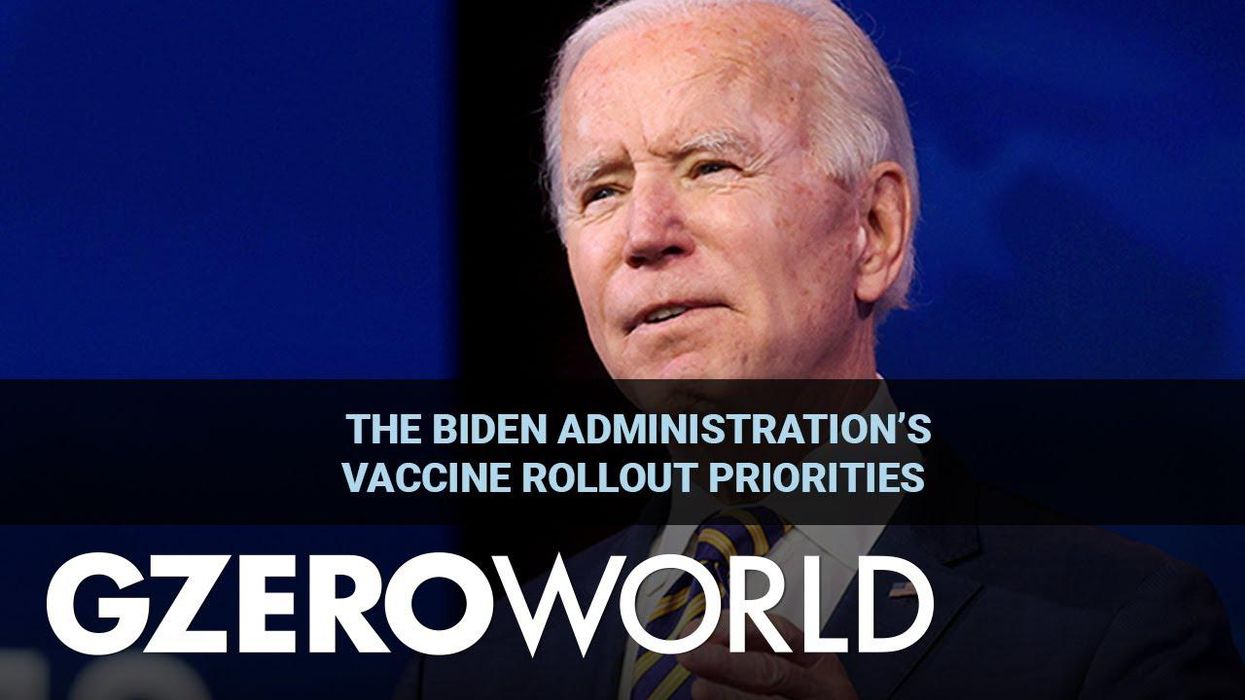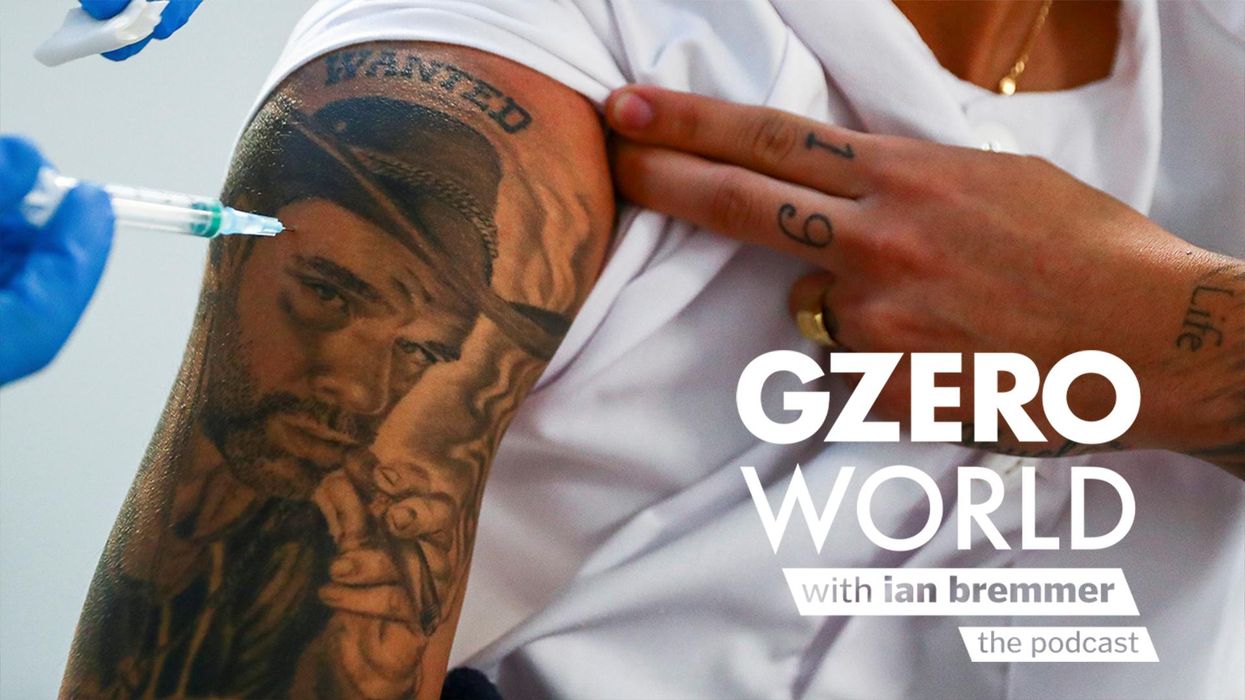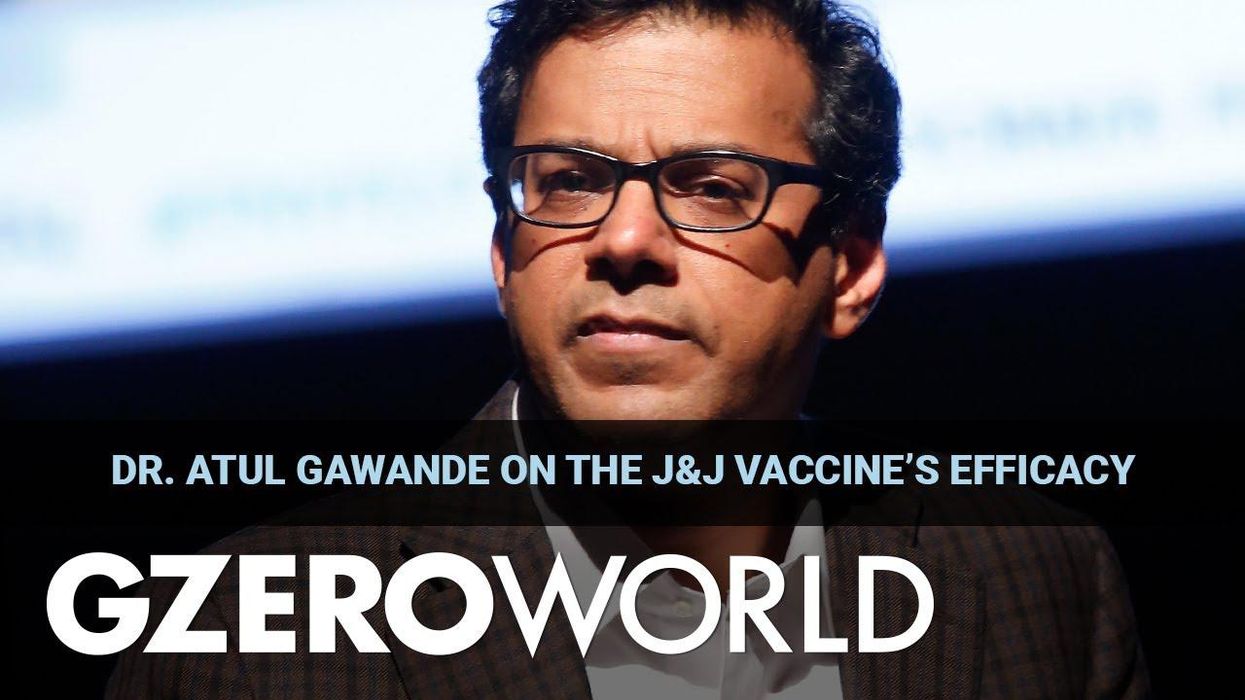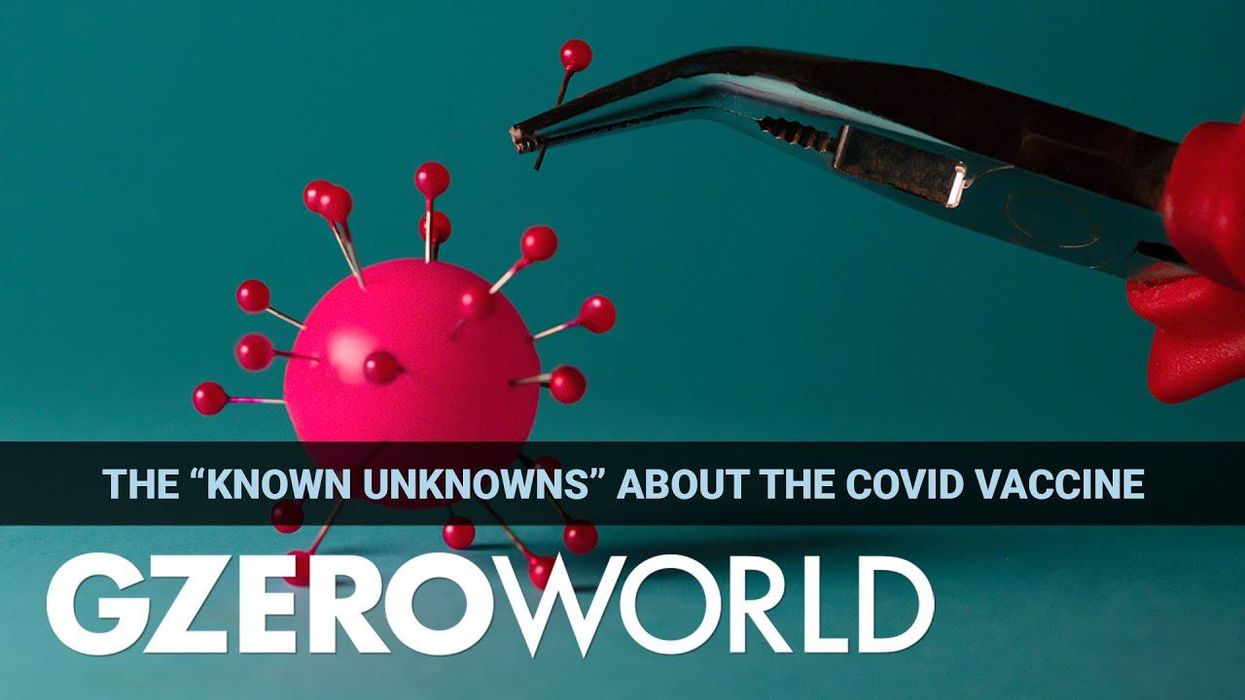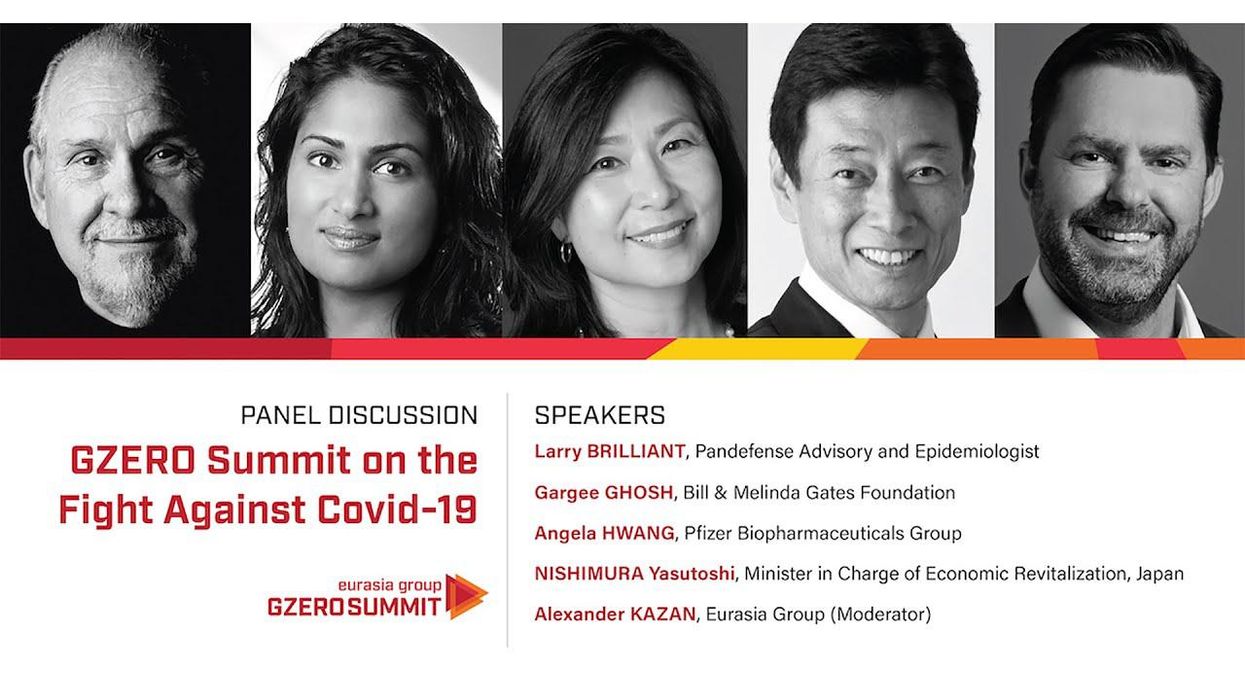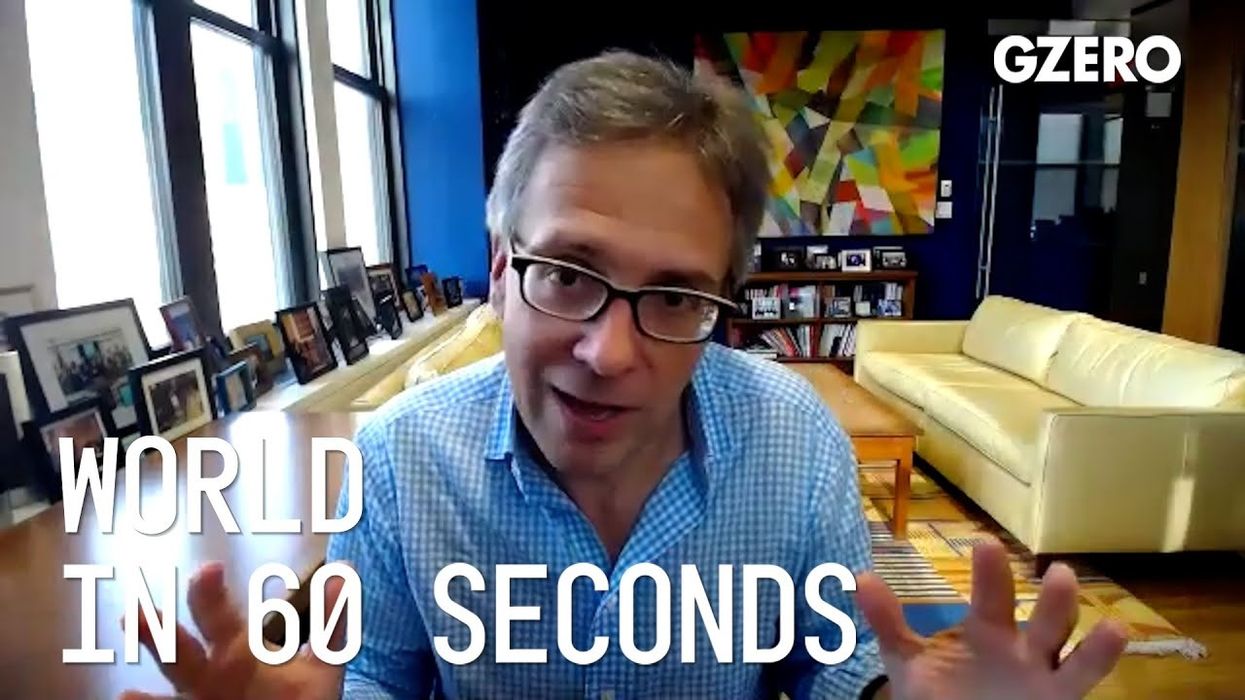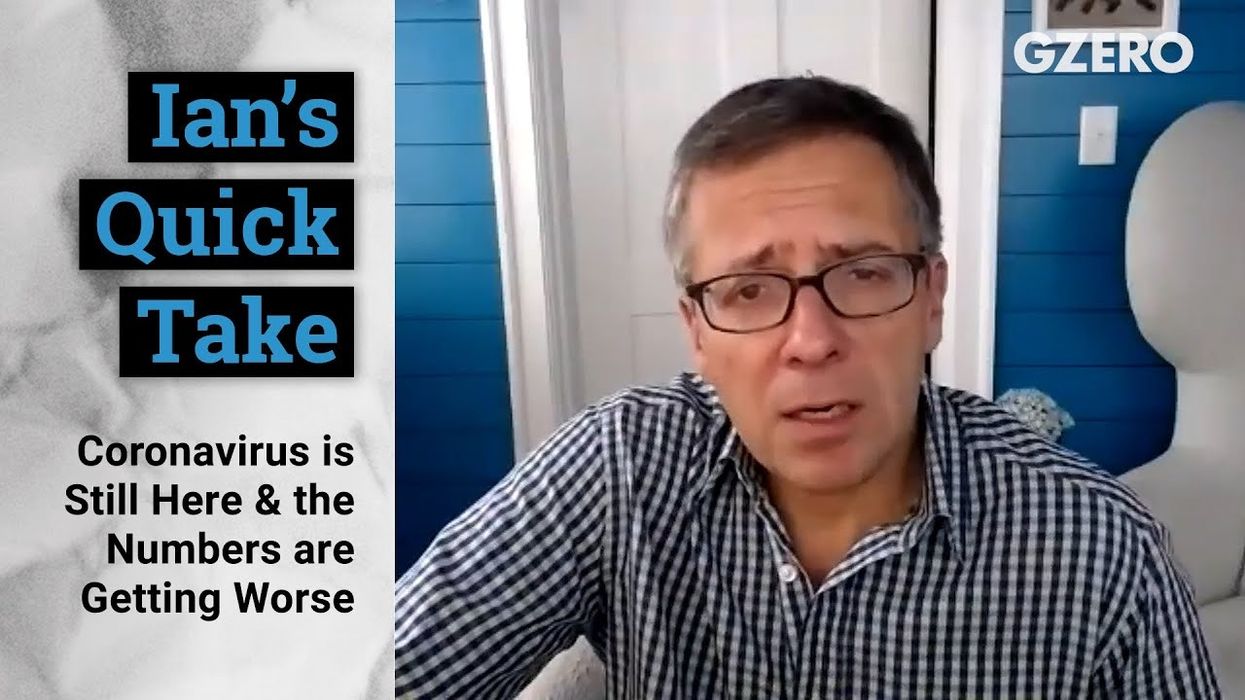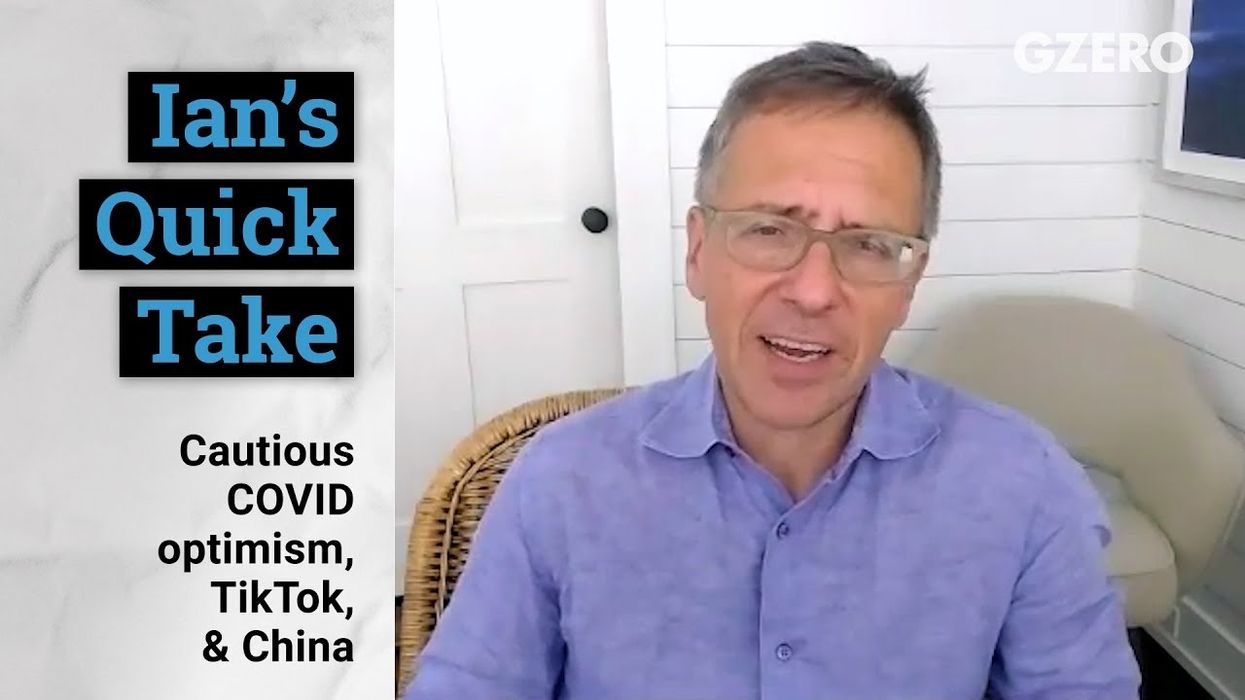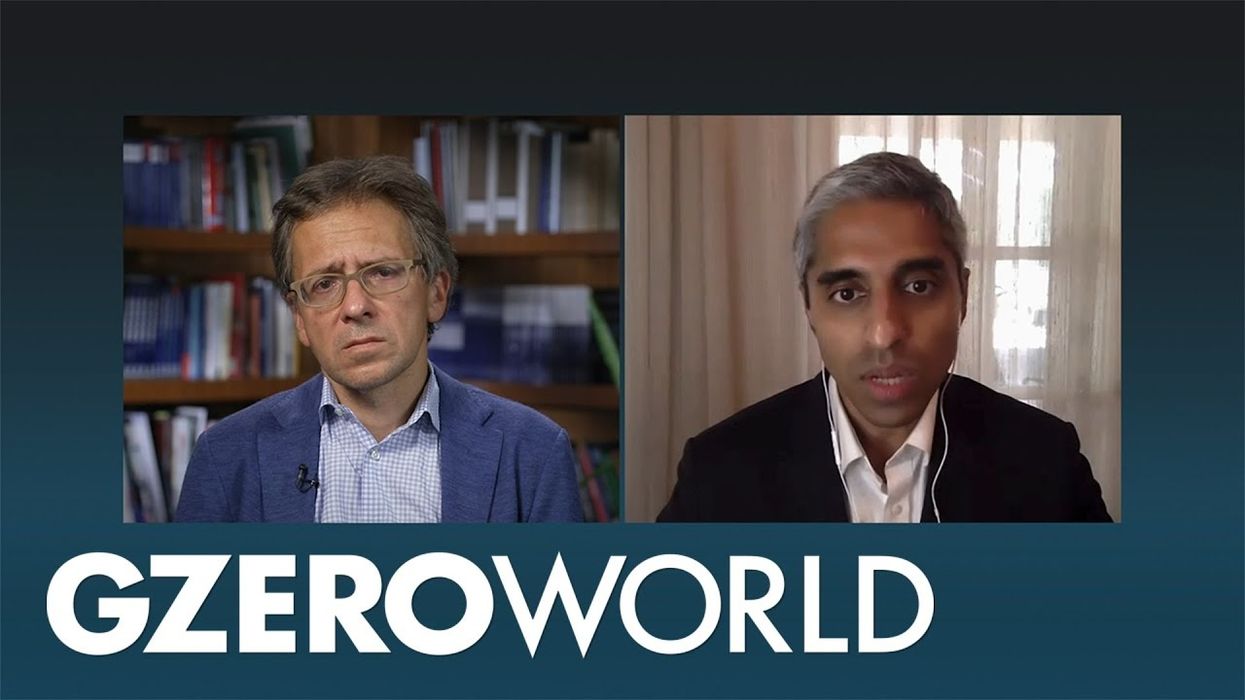GZERO World Clips
The Biden administration’s vaccine rollout priorities
While surgeon and public health expert Dr. Atul Gawande thinks that the Biden administration has been hitting most of the marks when it comes to turning around the US vaccine rollout operation, there's one area where they need to step things up: the development of cheaper and more effective antiviral drugs for people infected with COVID-19. But when it comes to vaccine distribution itself, Dr. Gawande believes that the current administration has a firm grasp on boosting vaccine supply. That's a big change from just a few weeks ago, when the country was essentially flying blind on vaccine distribution.
Feb 10, 2021
